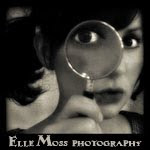St Peter's Church - WPD 2012
Now, when I tell you that World Pinhole Photography Day (WPPD) 2012 was over a month ago, you'd be forgiven for thinking that I should really have got my act, and this post, out sooner; but please, let me explain...
To begin at the beginning (always a
good place to start) pinhole photography is, by nature, a slow process -
literally! (Slow 'process'? 'Photography'?!... Oh, never mind.) In my
particular case it's really slow, chiefly because of the
following:
- I use old-school 120mm,
medium format film for my pinhole work and, as I'm not yet lucky enough to
have my own darkroom at home, I have to wait for the film(s) to be
developed and processed commercially.
- Places which competently develop
and process 120mm film are getting thin on the ground nowadays.
- Commercial processing and
developing 120mm films takes time, at least a week, especially as films
usually have to be sent away to a darkroom. It's obviously more
economical to send several films together, so I also sent films shot
throughout the week before and after Pinhole Day, not just the ones
from the day itself.
- Once the negatives and test
shots come back, they have to be digitally scanned in and uploaded to a
computer, so the photos can be shared on the internet and back-up copies
stored on a hard drive and/or memory stick, etc. (Pinhole photos aren't
usually post-processed with software such as Adobe Photoshop, as the whole
point of the shot is that you get what you get and the entire process is
low tech and antiquated, but some people do it. I, myself, have been known
to on the odd occasion!
So, that's the first 2 1/2 weeks
accounted for. The rest of the time has been spent researching and
planning what I was going to write in this post - and being ill!
Now if you don't know or aren't 100% sure what pinhole photography is; the following should be of interest. (If you already know, then please skip this bit with my blessing!)
A pinhole camera is basically a light-tight box without a lens. It has a tiny hole which, when uncovered, lets the light in. Pinhole cameras can be made from almost anything, although they usually resemble old-fashioned 'Box Brownie' or bellows type cameras, but circular biscuit tins and food cans are often also used. Pinhole 'purists' often make their own cameras, either from scratch or a kit, but I personally use a plastic Diana F+ Lomography camera, with the lens removed and set to 'true pinhole'. Recently, people have been experimenting wildly with making pinhole cameras out of the most unlikely things - just check out this page of amazing creations on Photojojo!
Three more things:
As you may have noticed, my pinhole photographs so far have been in black and white, but there's no reason you can't use colour.
Pinhole takes photography right back to basics, so try it, learn from it and have fun with it. Experiment and feel free to share your results with me - I'd love to see them! (World Pinhole Day is always held on the last Sunday in April, so you've got time to get some good practice in!
Until next time!
Emma ♥
P...P...P... Pinhole a Penguin! 2010
A pinhole camera is basically a light-tight box without a lens. It has a tiny hole which, when uncovered, lets the light in. Pinhole cameras can be made from almost anything, although they usually resemble old-fashioned 'Box Brownie' or bellows type cameras, but circular biscuit tins and food cans are often also used. Pinhole 'purists' often make their own cameras, either from scratch or a kit, but I personally use a plastic Diana F+ Lomography camera, with the lens removed and set to 'true pinhole'. Recently, people have been experimenting wildly with making pinhole cameras out of the most unlikely things - just check out this page of amazing creations on Photojojo!
The Bench (WPD 2010)
Three more things:
As you may have noticed, my pinhole photographs so far have been in black and white, but there's no reason you can't use colour.
Pinhole takes photography right back to basics, so try it, learn from it and have fun with it. Experiment and feel free to share your results with me - I'd love to see them! (World Pinhole Day is always held on the last Sunday in April, so you've got time to get some good practice in!
Until next time!
Emma ♥



















I've always been curious about pinhole photography. Thanks for sharing.
ReplyDeleteThanks for commenting, Diane. Always nice to know when someone's getting something useful out of this blog! :-D
Delete